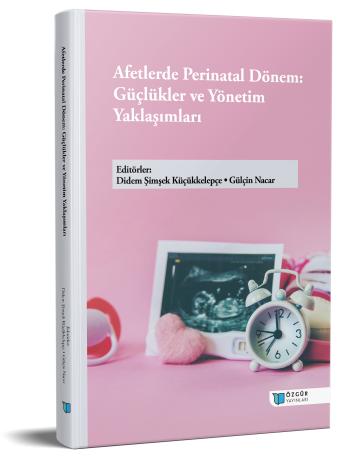
Women's Health and Social Support in Disasters
Chapter from the book:
Şimşek Küçükkelepçe,
D.
&
Nacar,
G.
(eds.)
2025.
Perinatal Period in Disasters: Challenges and Management Approaches.
Synopsis
During disasters, women face multidimensional risks due to gender roles, structural inequalities, access to limited resources, and increased care responsibilities. The reason why women are more affected by disasters is not only biological but also social and cultural factors. During this process, women face serious obstacles in the areas of shelter, nutrition, hygiene, access to health services, and psychosocial support; their reproductive health needs are often ignored. Security gaps experienced during disasters increase the risk of sexual violence; inadequate resources make it more difficult for women to access basic rights. Social support stands out as an important protective factor that increases women's psychological resilience and reduces the negative effects of disasters. In disasters, it is considered a critical necessity for women to regain their functionality and rebuild their mental well-being to be provided in a continuous, organized, and accessible manner. Health professionals have a critical role in rebuilding women's health and psychosocial well-being during disasters. Providing health services to women with an accessible, holistic and culturally sensitive approach will support both individual and social recovery processes. Therefore, strengthening social support mechanisms for women during disasters and training health workers in a way that is sensitive to gender-based needs is of vital importance.

